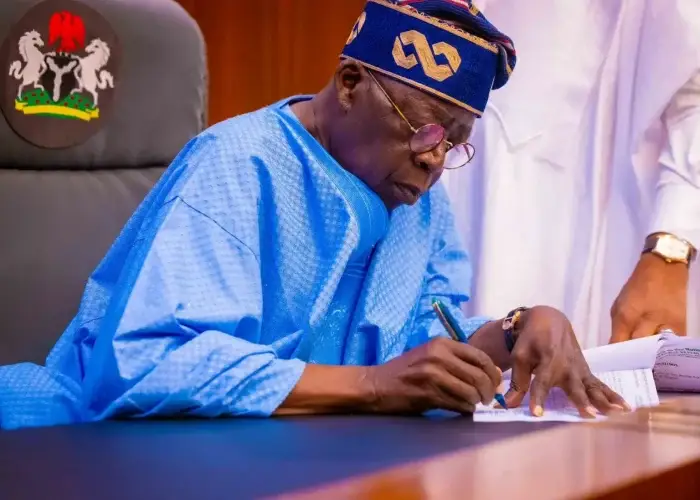
Tinubu’s Coastal Highway Project Faces Scrutiny as Senate Approves $700 Million Loan with Just 30km Completed

Nigeria’s Senate has approved a $700 million external loan for the Lagos-Calabar Coastal Highway project, sparking public criticism over the project’s pace and growing concerns about transparency under the Bola Tinubu regime.
The loan is part of a $21.19 billion borrowing plan submitted by President Tinubu to finance infrastructure, agriculture, energy, education, and other sectors. However, the spotlight remains firmly on the controversial coastal highway project, which has completed only 30 kilometres, or less than 5 per cent of its proposed 700-kilometre stretch since its launch in early 2024.
Despite the limited progress, the Tinubu regime has aggressively promoted the highway as a transformative initiative that will enhance regional integration and unlock economic growth across southern Nigeria. In May 2025, President Tinubu personally commissioned the first completed segment in Lagos, hailing it as a significant achievement of his Renewed Hope agenda.
But the reality on the ground tells a different story.
This government is borrowing faster than it’s building. Approving $700 million when barely 30 kilometers have been completed raises serious red flags about project management and value for money.
The Economic Community of West African States (ECOWAS) Bank for Investment and Development had previously approved a $100 million loan for the initial 47.7km segment. The additional funds now approved by the Senate bring the total known external commitments for the project to over $800 million, yet the highway remains largely unbuilt across multiple states.
Nigerians have taken to social media to question the rationale behind the loan approval, especially as the country’s public debt stock continues to increase. The Debt Management Office projects that Nigeria’s total debt will exceed ₦180 trillion by the end of 2025, driven by increased external borrowing under the Tinubu government.
Some Senators, defended the approval, stating that “long-term infrastructure requires long-term financing,” and that the coastal highway will eventually yield economic dividends.
However, the lack of independent oversight, progress timelines, or published impact assessments has only deepened scepticism.
The Ministry of Works, headed by former Ebonyi governor Dave Umahi, has yet to release a detailed project status report or spending breakdown for the highway. Calls for a legislative oversight committee to monitor disbursement and construction milestones are growing louder.
For now, the coastal highway project remains a symbol of Nigeria’s broader infrastructure paradox:
High ambition, massive borrowing, but slow and often invisible, progress.
Read More:
- ICYMI: Residence of Ghana’s Ambassador to Nigeria Burgled in Nigeria’s Federal Capital
- French Media Giant Canal+ Buys Out MultiChoice in $3B Deal
About The Author
Related Articles
AES Condemns Niamey Airport Attack, Warns of Coordinated Destabilisation
The Alliance of Sahel States has strongly condemned the armed attack on...
ByWest Africa WeeklyFebruary 2, 2026Mali Cedes Strategic Land to Guinea to Deepen Trade Cooperation
Mali has approved the transfer of a strategic parcel of land to...
ByWest Africa WeeklyFebruary 2, 2026Senegal to Appeal CAF Sanctions After AFCON Final Controversy
Senegal has announced plans to formally appeal the sanctions imposed by the...
ByWest Africa WeeklyFebruary 2, 2026Burkina Faso Takes Legal Step Toward Nuclear Energy Development
Burkina Faso has voted to join the Vienna Convention on Civil Liability...
ByWest Africa WeeklyFebruary 2, 2026












Leave a comment